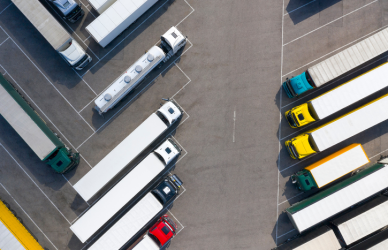As trade between the U.S. and Mexico continues to surge thanks to nearshoring, experts emphasize the critical need for both nations to prioritize infrastructure, technology, policies, and cargo security to ensure a smooth flow of goods.
“The reality is there’s never been a time when U.S.-Mexico trade was more important than it is right now,” said Mark Yeager, CEO of Chicago-based Redwood Logistics.
At a recent two-day gathering in Monterrey, over 75 shippers, tech firms, and trade experts convened to delve into topics like cross-border supply chains and emerging nearshoring trends.
“This is our Olympics, our World Series. It can be challenging, complex and can require patience and perseverance, but we also all know that that kind of complexity comes with opportunity — opportunity for all of us,” Yeager said.
In 2023, U.S. trade globally reached a staggering $5.1 trillion, with Mexico alone accounting for nearly $800 billion in trade, reaffirming its position as the top trade partner for the United States. Enhancing infrastructure across North America emerged as a central theme during the event.
“I think you’re seeing growth all across the U.S.-Mexico border … and Laredo [Texas] is where the rubber meets the road,” said Jordan Dewart, president of Redwood Mexico. “I think that’s where the infrastructure is headed. That’s where the main investment deals on highways to access the border are going. If you go to Laredo right now, the amount of new warehousing construction, new trucking facilities construction, is just staggering. There are miles and miles of construction. If you drive up I-35, you can see the dust clouds from 50 miles away from all construction. So I think everyone will benefit.”
Israel Delgado, CEO of Express Service Transport Inc. in San Diego, highlighted the regulatory challenges impacting the trucking industry on both sides of the border, citing Mexico’s Carta Porte Complement (CCP) as a notable example. The CCP, introduced in 2021 to safeguard the movement of legitimate goods within Mexico, has drawn criticism from trade members for complicating cross-border transactions.
Delgado, also serving as vice president of the northeast region of Mexico for Canacar, Mexico’s trucking chamber of commerce, underscored the country’s driver shortage issue.
“The lack of drivers is something that we need to take a look into,” Delgado said. “We’ve been pushing so hard in trade shows. We have 56,000 driver jobs open in Mexico today.”
Canacar, he mentioned, is actively promoting truck driving and logistics careers to address this challenge.
“A lot of moms want to jump into trucks, and I think we need to let go of the old mindset that women cannot do the job,” Delgado said. “We have less than 5,000 women participating in trucking. So we need to support women in Mexico and do whatever it takes.”
Marianna Raphael, the general director of Connecting Mexico, emphasized the imperative for Mexico to bolster cargo security measures. Connecting Mexico, based in Mexico City, plays a pivotal role in fostering investment in the country and advocates for initiatives aimed at enhancing security in cargo transportation.
“I think that security is a huge thing. Our current government has focused on the militarization of everything. They are talking about a more specialized military force to take care of security on roads,” Raphael said. “I do think that there needs to be a different approach on security, to show people that are afraid of having to drive or for companies, it’s good to know the government is there.”
Source: Freightwaves











